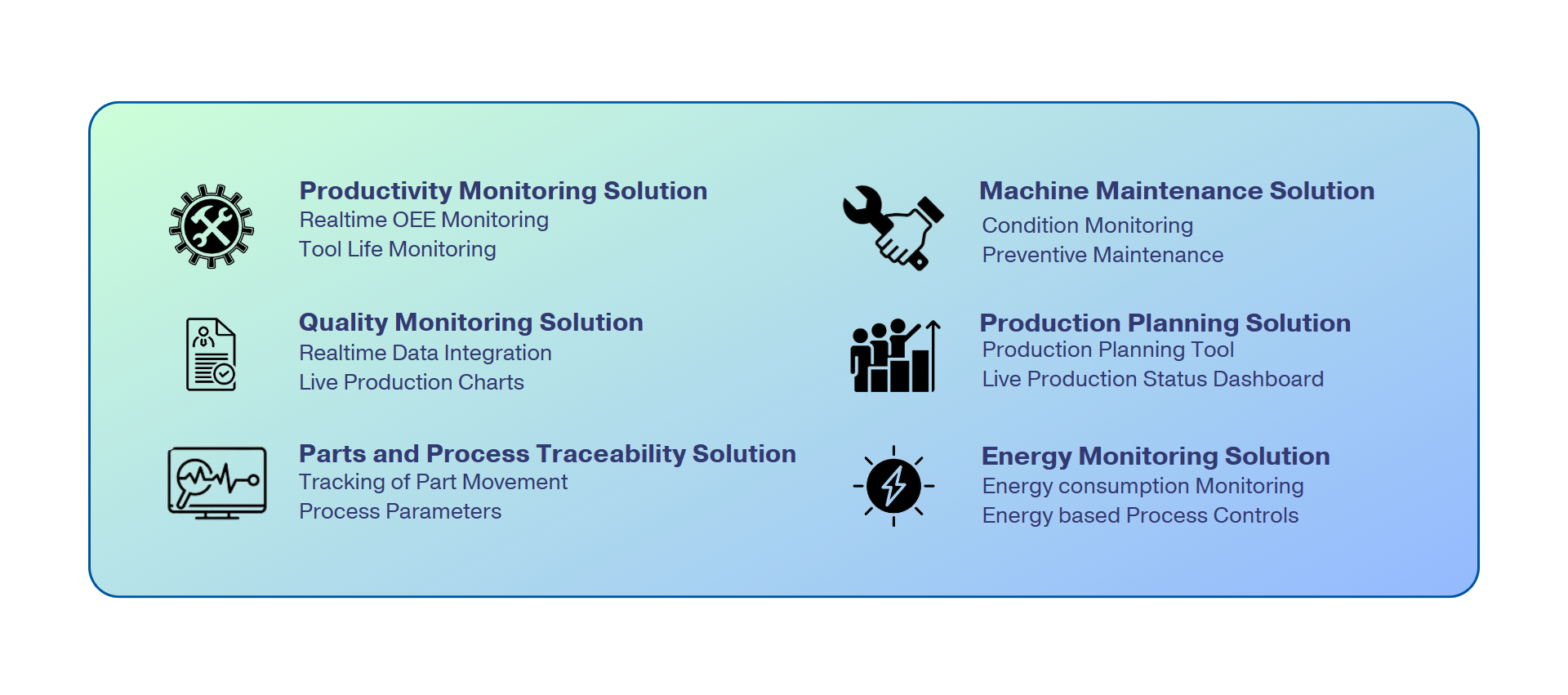Industry 4.0


Smart Factories
Industry 4.0 heralds the era of smart factories where intelligent machines communicate and cooperate with each other, optimizing production processes and responding dynamically to changes in demand.

IoT and Connectivity
The Internet of Things forms the backbone of Industry 4.0, enabling the seamless connection of devices, sensors, and systems. This interconnectedness facilitates real-time data exchange, providing invaluable insights for decision-making.

Big Data Analytics
Industry 4.0 harnesses the power of big data analytics to extract actionable intelligence from vast datasets. Manufacturers can make informed decisions, predict maintenance needs, and continuously improve operational efficiency.

Artificial Intelligence (AI)
AI plays a pivotal role in Industry 4.0 by enabling machines to learn, adapt, and make intelligent decisions. Machine learning algorithms enhance production processes, quality control, and predictive maintenance.

Cyber-Physical Systems (CPS)
The integration of physical processes with digital technologies defines cyber-physical systems. This synergy results in intelligent, self-optimizing systems that bridge the gap between the physical and virtual worlds.

Digital Twins
Industry 4.0 introduces the concept of digital twins, virtual replicas of physical objects or systems. Manufacturers can simulate, monitor, and analyze these digital twins to optimize performance and troubleshoot potential issues.

Autonomous Systems
Autonomous robots and machinery are a hallmark of Industry 4.0. These systems operate independently, performing tasks with precision and efficiency, thereby reducing manual intervention and enhancing safety.

Augmented Reality (AR) and Virtual Reality (VR)
AR and VR technologies are integrated into manufacturing processes for training, maintenance, and design purposes. These immersive technologies enhance worker skills and contribute to a more streamlined workflow.

Cloud Computing
Industry 4.0 leverages cloud computing for scalable storage, processing power, and collaboration. Cloud-based solutions facilitate real-time access to data, supporting agile decision-making and fostering collaboration across geographies.

Customization and Flexibility
With Industry 4.0, manufacturing shifts from mass production to customized, on-demand production. Smart factories can quickly adapt to changing requirements, offering a level of flexibility and customization previously unseen.
